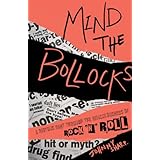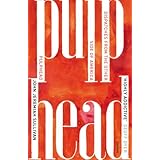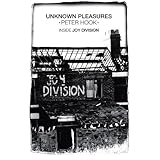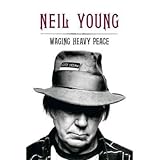So, another week in the music business and the hot topic is copyright again; that’s surprised everyone hasn’t it? Apple announces its new streaming service and a great introductory three month deal which it proposes to fund by not paying any royalties to artists. Predictably enough the Anne Robinson of digital rights management rides to the rescue. After taking on Spotify last year, Taylor Swift took aim at Apple this time with an open letter which has forced Apple to rethink its strategy of giving away other people’s earnings. Predictably again, it sparked off an online debate about hypocrisy when a photographer sent Ms Swift an open letter about photographic rights. It’s amazing how quickly these ‘debates’ descend into playground name-calling and tribalism; have a look for yourself but it’s not for the faint-hearted. Anyway, it’s all happy now because Apple has backed down and the artists will be paid.
While all that was going on centre-stage, you could easily miss another bit of copyright news being made which wasn’t attracting the attention of the popular and powerful Ms Swift. Various British music industry bodies, Musicians Union (MU), UK Music, and British Academy of Songwriters, Composers and Authors (BASCA) if you must know, have combined to request a judicial review into the creation of Section 28B of the Copyright, Designs and Patents Act 1988. Now that’s a real headline grabber isn’t it? In really simple terms, the government has inserted a clause (Section 28B) in the legislation, to take effect from June 2015, which made copying of CDs legal for personal, private use although you probably thought it was fine to do that anyway. The judicial process is far from over, but Mr Justice Green has upheld the review application.
On the face of it, these industry bodies are using the same principle as Taylor Swift, claiming that artists are losing royalties and that the industry shouldn’t allow this to happen, which is very noble of them, but if that’s true, then why take twenty years to decide that we shouldn’t be allowed to rip our CDs so we can listen to them on the train or create playlists for parties. Unless it isn’t just about that.
One of the remedies suggested by the music industry is a levy on recordable media (CDs, hard drives and so on), which has been tried in other European states. So call me an old cynic if you like, but surely their real concern is that the blank media industry is reaping the benefits of digital copying and the music industry isn’t getting its share. The UK proposal is a levy on blank media collected by an agency and shared out with artists. You don’t need a PhD to see that there’s absolutely no link between which songs are copied and the money coming in, so a huge and unnecessary bureaucracy has to be created to work out the collection and distribution process (supervised by the UK music biz). Anyone think that’s fair? And there’s an assumption that all digital media sold is being used for copying music; you can call me paranoid, but I have several hard drives and countless DVD-Rs full of original photos and there’s no way I’m paying duty on those so some chancer can copy Celine Dion’s Greatest Hits to flog in the market at Elephant & Castle. It’s like the whole class having to stay behind because the teacher doesn’t have the bottle to take on the bully.
So, how about an extra charge on every CD to account for a certain amount of ripping and copying? Well, one side of the argument is that no-one wants to pay for something that they can’t play on a device they use on the move, while, on the other hand, why should you pay extra if you have no intention of copying a CD? You could apply a charge when a CD is copied (or format-shifted) but who’s going to be happy about buying a CD from the artist’s website or at a gig to maximize the artist’s cut only to find that you then have to pay someone else for the privilege of listening to it on your media player. It’s equitable, but music buyers are going to be reminded of the cost every time they rip a CD (which is why MU, BASCA and UK Music don’t like it; they don’t look like the bad guys if you pay extra for a hard drive, rather than your music).
If the CD format is dying, and I’ve already bought a black tie, is this an attempt to accelerate its demise? If you’re buying a physical copy mainly to listen to it on a mobile device, why not just get rid of the middleman and buy it in a format you can load on to your media player? If there isn’t a physical copy you can eliminate the costs of artwork, packaging, storage and distribution and companies don’t need to worry about size of production runs when they sell on demand. If your album’s aimed at that hardcore who still want a physical package, then you can sell it on vinyl at a premium price and you can even throw in a digital download code, because it won’t increase your costs.
Let’s be completely honest about this; the music industry is going for the soft target again. Rather than try to take on organised counterfeiters, they’re trying to recoup their perceived losses by hitting, and alienating, music fans who have no objection to paying for a product. The business was quite happy to reap the benefits of digitisation in the production and distribution process but doesn’t like to see the customers using the same technology to shift formats for the user’s convenience. It certainly puts the eighties ‘Home taping is killing music’ campaign into perspective.
As always, the UK music establishment is frantically trying bolt the door when the stables have been empty for years while. Perhaps it’s one last cynical attempt to cash in on the punters who realise that they need to copy their CDs before the indestructible format vanishes and, ultimately, so do the CD players. So, if you’re one of those strange people that still believes in paying for music, you’ll have two choices: cheap and cheerful download or premium price (currently about twice the price of a CD) vinyl copy. As for streaming, well no artist I know is happy with their level of reward from Spotify, but the establishment’s comfortable with a lower percentage of an increasing volume for very little investment and the big players are now buying in to streaming services for their mass market activities.
Are there any alternatives to accepting the lower sound quality of MP3s and the high price of vinyl (and something to play it on if you didn’t save it from the first time round)? You could try uncompressed audio; Neil Young’s been touting his Pono format for a few years (other formats are available) and better internet bandwidth and bigger hard drives are making that more attractive now. Sound purists love it, but it’s a digital format and there’s no tactile packaging, photos or sleeve notes, and you could see it as just another way to resell back catalogue (again) in another format. Or maybe Cooking Vinyl MD, Martin Goldschmidt was right five years ago when he predicted the CD ‘will actually become a minority (non-mass market) format in the way that vinyl has’. Wouldn’t that be ironic?
Ok, you weren’t expecting to find Noel Coward here were you? Well, it’s about time you had some proper culture instead of all that pop music nonsense. In the play “Private Lives”, the character Amanda has the memorable line “Extraordinary how potent cheap music is”, which has been quoted virtually everywhere. The broadsheets love to give pop thinkpieces an intellectual feel by throwing this one in, but there’s a whole new slant on it now. Thom Yorke and Nigel Godrich (and a few others) are having hissy fits about the financial returns from Spotify, but they’re missing the real target by a country mile.
The problem isn’t that consumers are only willing to pay a small amount for music. Most of the traditional teenage pop/rock/r’n’b (add your own genre as applicable) music consumers have grown up with the assumption that music is free if you know where to look for it, so why would you ever pay for it? Things used to be really simple; you heard a song on the radio (or in a club) or read about it in the NME and went to your local music shop and bought it on 7” vinyl, 12” vinyl, cassette or CD, depending on your age. The record company took a huge slice of the profit, but the artist got paid, particularly if they had a good lawyer and they wrote the song. The music business panicked in the seventies over home taping, but still pushed the development of digital technology in the eighties not realising they were opening a can of particularly fat, juicy worms.
Digital recording and processing; you can make and keep perfect copies of everything and there’s no degradation no matter how many generations of copies you make. No more tapes or master discs to worry about storing (or having stolen by the band when they don’t like the mix or don’t think their piece of the action is big enough). And then the realisation dawned that if Sony (other labels are available) could make perfect copies, then it was only a matter of time before some under-nourished geek in a bedroom in Dollis Hill worked out how to crack the code and make their own perfect copy, which they generously circulated around the world with that new internet thing. And they were actually complicit in the process when they got behind recordable formats such as Minidisc and Digital Compact Cassette (ask your dad, kids).
Of course it was easy to do a quick and dirty remaster for CD on all of your back catalogue and get the punters to pay to hear them again with a clarity you promised they wouldn’t believe. Have you heard some of those early remasters? Some of them are actually painful to listen to, but we bought into it and duplicated our vinyl with CDs. But the physical CD market was quite healthy because the audio files were massive and transfer speeds on the internet were painfully slow. So, there would only be a problem if someone worked out a way of speeding up the internet and making audio files much smaller; that wasn’t going to happen, was it? MP3 and broadband sorted that one out with a little help from those lovely people at Apple and soon we were downloading MP3s as well.
Of course the music industry tried to defend itself with copyright protection systems (which didn’t work) and litigation (which also didn’t work), so we’re in a position now where creativity has virtually no value. Bands are being asked to pay to play in venues, musicians are being asked for permission to use their work in films for free (for the exposure value) and music writers and photographers are working for peanuts. It couldn’t get any worse, could it?
Of course it could. In a typical “four legs good, two legs better” move, the music industry is showing an interest in Neil Young’s PONO full-fat, uncompressed music delivery system (which Shakey’s been trying to flog for years now, with no success) after years of squeezing sound files as small as you can to get them to sound good on an MP3 player or a phone. It’s CD all over again; if this system ever makes it to the market, then it’s an opportunity to persuade the small market sector that still believes in paying for music to shell out for their favourite albums yet again. But we won’t get fooled again, will we?
 You should have realised by now that I would get the last word on this one. We’ve had some varied and interesting selections from our regular team and from several guest contributors. Many thanks for that to Billy Ray Martin, Dean Owens, Lilygun, Skye Edwards and Steve Jenner. As well as all of the great music we’ve highlighted on MusicRiot, we’ve also seen a great selection of books about music and music-related subjects so, in no particular order, here are my favourites from 2012.
You should have realised by now that I would get the last word on this one. We’ve had some varied and interesting selections from our regular team and from several guest contributors. Many thanks for that to Billy Ray Martin, Dean Owens, Lilygun, Skye Edwards and Steve Jenner. As well as all of the great music we’ve highlighted on MusicRiot, we’ve also seen a great selection of books about music and music-related subjects so, in no particular order, here are my favourites from 2012.
“Going to Sea in a Sieve” – Danny Baker
I realise that Danny Baker is a bit like Marmite: he tends to provoke strong reactions. If you already like Danny Baker, this is a must; his writing style is very conversational and he has some wonderful stories to tell from a career stretching over 40 years in the music and media industries. The real beauty of the book is that none of the anecdotes seem to be overplayed; if anything, he seems to play down stories of meetings with Elton John, pre-success Queen (which is hilarious) and Michael Jackson. I’m already looking forward to the next volume.
“Mind the Bollocks” – Johnny Sharp
There’s a link to the previous book here; both were written by ex-NME writers, but that’s where the similarity ends. Here, Johnny Sharp (who wrote for the NME as Johnny Cigarettes) skewers pretension, hype and plain drug-induced nonsense in a book that’s absolutely overflowing with schadenfreude. As a counterbalance to stabbing his former colleagues in the back, he’s not afraid of exposing himself to ridicule where it’s deserved, which adds to the overall credibility of the book. Interestingly, one of the so-called facts torn apart by Sharp was the article from “The Word” in 2010 claiming that the charts were now dominated by stars who had been privately educated. It’s ironic that Billy Bragg used this so-called fact in his John Peel lecture for 6 Music recently.
“Pulphead: Dispatches from the Other Side of America” – John Jeremiah Sullivan
This is a fascinating series of essays which are mainly, but not exclusively, observations on some of the more interesting nooks and crannies of popular music including perceptive pieces on Christian Rock festivals, Michael Jackson and Axl Rose. Moving away from music, Sullivan discourses on reality TV, how he dealt with his brother almost dying of an electric shock, smoking weed in Disneyland and rogue palaeontologists and anthropologists. His point of view is always more or less skewed and always entertaining.
“Unknown Pleasures:Inside Joy Division” – Peter Hook
Having read Hooky’s first volume of memoirs “The Haçienda: How Not to Run a Club”, this was always one to add to the library. Hooky, like Danny Baker, writes in a very conversational style and is incredibly honest about his own mistakes, particularly in the events leading up to the suicide of Ian Curtis. When he isn’t dealing with tragedy, however, he’s hilarious in a very readable, self-deprecatory style. I’m already looking forward to the next instalment dealing with New Order.
“Waging Heavy Peace: A Hippy Dream” – Neil Young
OK, I admit it; I’m a Neil Young fan. I read the Jimmy McDonough biography, “Shakey”, which Young didn’t authorise but didn’t actively obstruct but left it feeling slightly let down, so the idea of an autobiography grabbed my interest from the start. The experience of reading the book is a bit like a Neil Young guitar solo; you never know where it’s going next, but you know it’s going to be interesting. He intersperses autobiographical material with enthusiastic promotion of the various technology projects which he’s developing, including the Lionel model railway, the environmentally friendly Lincvolt car and the Pono high quality music player. In an age of jaded superstars, it’s great to hear someone being enthusiastic about his projects and constantly reiterating his love for family and friends. You finish this book feeling that you actually know something about Neil Young and that’s the mark of a good biography for me.
All of these books are worth reading if you want to know a little more about what lies behind the music and the headlines from the viewpoint of people who were actually involved. You might also want to have a look at Carole King’s “Natural Born Woman” and Pat Long’s “The History of The NME”.
Have a great New Year.


